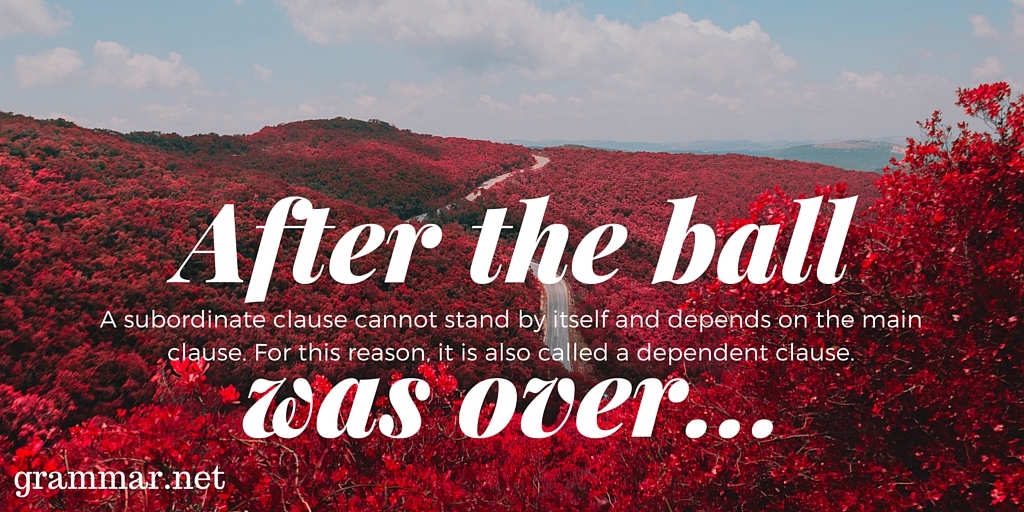A clause is a group of words containing a subject and a verb; it is either part of a sentence or it is an entire sentence in itself. A subordinate clause cannot stand by itself and depends on the main clause. For this reason, it is also called a dependent clause.
Dependent clause starts with a relative pronoun or subordinate conjunction. Examples of relative pronouns are whose, that, which and who. Examples of subordinate conjunctions are if, that, before, even though, after, since, if, rather than, wherever, because and why.
Once the program starts
Because the check was late
Who thinks he is an onion bagel
After the ball was over
Once the main clause is added, these subordinate ones provide important information to the new sentence.
“Once the program starts, we will sit on the couch and eat popcorn.”
“Bernie’s account was overdrawn because the check was late.”
“I am very worried about the man who thinks he is an onion bagel.”
“After the ball was over, Mary took off her eyeglasses.”
The main types are the conditional clause and the relative clause. When it is conditional, the clause shows “conditions” regarding the main clause.
“If it snows, we will build a snowman.”
“We will come home early if it rains.”
A relative clause gives additional information about the noun it refers to.
“My aunt, who is a great cook, makes a delicious lasagna.”
“The house that burned down is not mine.”







